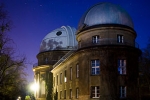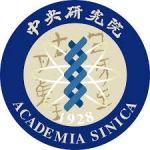Displaying items by tag: research center
Future of Life Institute
The Future of Life Institute (FLI) is a volunteer-run research and outreach organization in the Boston area that works to mitigate existential risks facing humanity, particularly the risks from artificial intelligence (AI).
The institute was founded in March 2014. FLI operates grassroots-style to recruit volunteers and younger scholars from the local community in the Boston area.
The FLI mission is to catalyze and support research and initiatives for safeguarding life and developing optimistic visions of the future, including positive ways for humanity to steer its own course considering new technologies and challenges FLI is particularly focused on the potential risks to humanity from the development of human-level artificial intelligence.
It was founded by MIT cosmologist Max Tegmark and Skype co-founder Jaan Tallinn among others, and includes cosmologist Stephen Hawking and entrepreneur Elon Musk among others on the board of advisers.
Leibniz-Institut für Astrophysik
Leibniz Institute for Astrophysics Potsdam (AIP) is a German research institute.
It is the successor of the Berlin Observatory founded in 1700 and of the Astrophysical Observatory Potsdam (AOP) founded in 1874. The latter was the world's first observatory to emphasize explicitly the research area of astrophysics. The AIP was founded in 1992, in a re-structuring following the German Reunification.
The AIP is privately funded and member of the Leibniz Association. It is located in Babelsberg in the state of Brandenburg, just west of Berlin, though the Einstein Tower solar observatory and the great refractor telescope on Telegrafenberg in Potsdam belong to the AIP.
The key topics of the AIP are cosmic magnetic fields (magnetohydrodynamics) on various scales and extragalactic astrophysics. Astronomical and astrophysical fields studied at the AIP range from solar and stellar physics to stellar and galactic evolution to cosmology.
Lunar and Planetary Institute (LPI)
The Lunar and Planetary Institute is an American research institute that provides support services to NASA and the planetary science community, and conducts planetary science research under the leadership of staff scientists, visiting researchers, and postdoctoral fellows.
The Lunar and Planetary Institute (LPI) is dedicated to the study of the solar system, its formation, evolution, and current state. The Institute is part of the Universities Space Research Association (USRA) and is supported by the Science Mission Directorate of the National Aeronautics and Space Administration (NASA).
Located in Houston, Texas, USA, the LPI maintains an extensive collection of lunar and planetary data, carries out education and public outreach programs, and offers meeting coordination and publishing services. The LPI sponsors and organizes several workshops and conferences throughout the year including the Lunar and Planetary Science Conference (LPSC) held in March in the Houston area.
Academia Sinica Institute of Astronomy and Astrophysics (ASIAA)
Academia Sinica Institute of Astronomy and Astrophysics (ASIAA) is one of the 31 institutes and centers in Academia Sinica aspiring to be at the forefront of astronomical research.
Devoting our efforts in specific directions, we have built up core groups in theoretical and experimental astrophysics and instrumentation. Research topics carried out at ASIAA range from solar system, star formation, to extra-galactic science and cosmology. ASIAA also frequently hosts international workshops and conferences.
The goal of ASIAA is to become an international research institute engaged in frontier projects, competing and collaborating with the leading research groups worldwide.
Centro de Astrofísica da Universidade do Porto (CAUP)
The Centro de Astrofísica da Universidade do Porto (Centre for Astrophysics of the University of Porto - CAUP) is the largest astronomy research institute in Portugal. It is a private research institute, non-profit making and recognized as being of public utility by the Portuguese Government.
- Its objectives include the promotion and support of astronomy through
- research
- education at graduate and undergraduate levels
- activities for primary and secondary schools
- science outreach and the popularisation of astronomy
- CAUP is responsible for the scientific management of the planetarium of Porto.
Research teams:
- Origin and Evolution of Stars and Planets - Star Formation and Early Evolution; Planetary Systems (Exoplanets); Stellar Populations and Stellar Evolution
- Galaxies and Observational Cosmology - Physical properties of massive galaxies; Galaxy cluster astrophysics; Structure formation paradigms; Dynamical dark energy; Varying fundamental constants
Planetary Science Institute (PSI)
The Planetary Science Institute (PSI) is a private, nonprofit corporation dedicated to Solar System exploration. It is headquartered in Tucson, Arizona, where it was founded in 1972.
PSI scientist are involved in numerous NASA and international missions, the study of Mars and other planets, the Moon, asteroids, comets, interplanetary dust, impact physics, the origin of the solar system, extra-solar planet formation, dynamics, the rise of life, and other areas of research. They conduct fieldwork on all continents of the Earth. They are also actively involved in science education and public outreach though school programs, children's books, popular science books and art.
PSI scientists are based in 20 states and the District of Columbia, Australia, Canada, France, Germany, Ireland, Latvia, Russia, South Africa, Switzerland and the United Kingdom.
GSI Helmholtz Centre for Heavy Ion Research
The GSI Helmholtz Centre for Heavy Ion Research (German: GSI Helmholtzzentrum für Schwerionenforschung GmbH) is a federally and state co-funded heavy ion research center in the Wixhausen suburb of Darmstadt, Germany. GSI was founded in 1969 as the Society for Heavy Ion Research (German: Gesellschaft für Schwerionenforschung), abbreviated GSI, to conduct research on and with heavy-ion accelerators.
The laboratory performs basic and applied research in physics and related natural science disciplines. Main fields of study include plasma physics, atomic physics, nuclear structure and reactions research, biophysics and medical research. The lab is a member of the Helmholtz Association of German Research Centres.
GSI operates a worldwide unique large-scale accelerator facility for heavy ions and currently employs about 1.100 people. In addition approximately 1.000 researchers from universities and other research institutes around the world use the facility for their experiments.
GSI is a limited liability company (Ger. GmbH). Associates are the German Federal Government (90 per cent), the State of Hessen (8 per cent), the State of Rhineland-Palatinate (1 per cent) and the Free State of Thuringia (1 per cent). They are represented in the board of directors by the Federal Ministry of Education and Research and the respective Ministries. GSI is a member of the Helmholtz Association, Germany's largest research organisation.
The goal of the scientific research conducted at GSI Helmholtzzentrum für Schwerionenforschung is to reach a better understanding of the structure and behavior of the world that surrounds us.
Goddard Center for Astrobiology (GCA)
The Goddard Center for Astrobiology (GCA) is a NASA center focusing on astrobiology research themes.
- Did delivery of carbon-containing molecules and water to the early Earth enable the emergence and evolution of life?
- If so, how did it happen?
- What were the processes involved in the creation of such molecules?
These are some of the driving questions behind the research that is performed at the Goddard Center for Astrobiology. Our scientists focus on various aspects of exogneous materials, from the formation of complex organic materials on ice grains to the delivery of those primordial materials to the Earth, starting in the early bombardment period and continuing until today.
A critical assessment requires investigations of very diverse topics. Our research encompasses four themes: each focusing on a different aspect of how life emerges from cosmic and planetary precursor (Goal 3 of the NASA Astrobiology Road Map).
GeoForschungsZentrum (GFZ) - Research Centre for Geosciences
The GeoForschungsZentrum (GFZ), or "Helmholtz Centre Potsdam GFZ German Research Centre for Geosciences", commonly called GFZ is the German national research center for Earth Sciences and Geosciences.
It is located in Potsdam, in the German federal state of Brandenburg, and is part of the Helmholtz Association of National Research Centers.
National Center for Atmospheric Research (NCAR)
The National Center for Atmospheric Research (NCAR) is a North American federally funded research and development center devoted to service, research and education in the atmospheric and related sciences.
NCAR's mission is to understand the behavior of the atmosphere and related physical, biological and social systems; to support, enhance and extend the capabilities of the university community and the broader scientific community – nationally and internationally; and to foster transfer of knowledge and technology for the betterment of life on Earth.
The National Science Foundation is NCAR's primary sponsor, with significant additional support provided by other U.S. government agencies, other national governments and the private sector.










